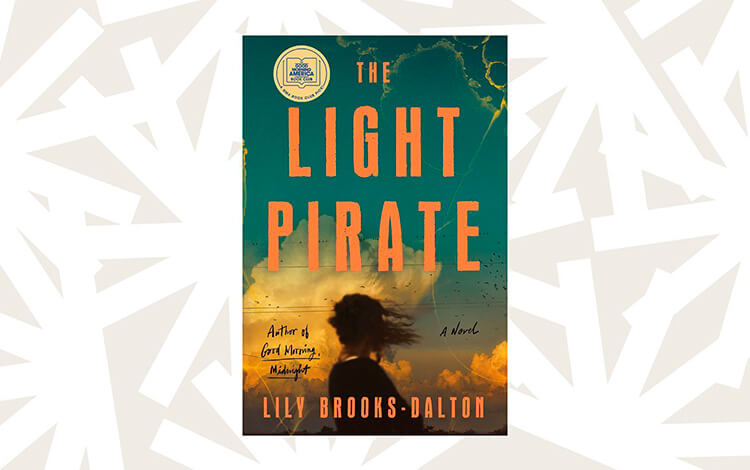Book Review: The Light Pirate by Lily Brooks-Dalton

Lily Brooks-Dalton’s The Light Pirate
Lily Brooks-Dalton’s The Light Pirate is a haunting and evocative exploration of a world in flux, where the forces of nature gradually reclaim their dominance over human civilization. Set against the backdrop of a deteriorating Florida, this novel presents a deeply atmospheric and poignant narrative that captures the essence of survival, adaptation, and the relentless power of nature.
Synopsis
The story begins with a powerful hurricane bearing down on a small town on Florida’s southeastern coast, a harbinger of the environmental decline that will soon consume the state. Kirby Lowe, an electrical line worker, and his pregnant wife, Frida, along with their two sons, Flip and Lucas, brace themselves for the storm’s impact. When the boys mysteriously disappear just before the hurricane strikes, Kirby ventures into the tempest to find them, leaving Frida to face the storm alone.
In the midst of the chaos, Frida goes into premature labor and gives birth to a daughter, Wanda, named after the very hurricane that ushers her into a world on the brink of collapse. As Florida’s landscape continues to disintegrate under the weight of rising sea levels and increasingly violent weather patterns, Wanda grows up in a world that is both familiar and alien, learning to navigate the challenges of a society that is slowly crumbling away.
Themes and Analysis
The Light Pirate is structured in four parts—Power, Water, Light, and Time—each reflecting the elemental forces shaping the story and the world within it. The novel is a meditation on the inexorable decline of human infrastructure and the resurgence of nature’s wildness. As civilization retreats, the characters in the novel are forced to confront not only the physical changes around them but also the existential questions that arise in a world where the future is uncertain and the past is rapidly being erased.
Brooks-Dalton’s portrayal of Wanda’s journey from childhood to adulthood is deeply resonant, as she adapts to the shifting environment and the new realities of life in a place abandoned by much of society. Wanda’s story is one of resilience and transformation, as she navigates the loss of family, the forging of new bonds, and the quest for meaning in a world that is being remade by nature. The novel’s emphasis on the beauty and violence of the untamable wilderness serves as both a lament for what has been lost and a celebration of what endures.
Writing Style
Brooks-Dalton’s prose is lyrical and evocative, capturing the raw beauty of the natural world as it reclaims its dominion over the remnants of human civilization. The novel’s pacing mirrors the rhythms of nature itself—sometimes slow and contemplative, other times swift and unforgiving. The author’s ability to convey the emotional depth of her characters while also painting a vivid picture of a world in decline is a testament to her skill as a storyteller.
The novel’s structure, divided into elemental parts, reinforces the themes of transformation and adaptation. Each section delves deeper into the changing world and Wanda’s place within it, creating a sense of inevitability and continuity that underscores the novel’s central message: the world as we know it may be slipping away, but life, in all its forms, will persist.
Conclusion
The Light Pirate is a powerful and thought-provoking novel that challenges readers to confront the uncomfortable truths about our planet’s future. Through the lens of Wanda’s life, Brooks-Dalton explores the resilience of the human spirit in the face of overwhelming change and the ways in which we must adapt to survive in a world that is constantly evolving.
For readers who appreciate environmental fiction and stories of survival, The Light Pirate offers a compelling and beautifully written narrative that will linger long after the final page is turned. It is a reminder of the delicate balance between humanity and nature, and the enduring strength that can be found in embracing the inevitable changes that lie ahead.




